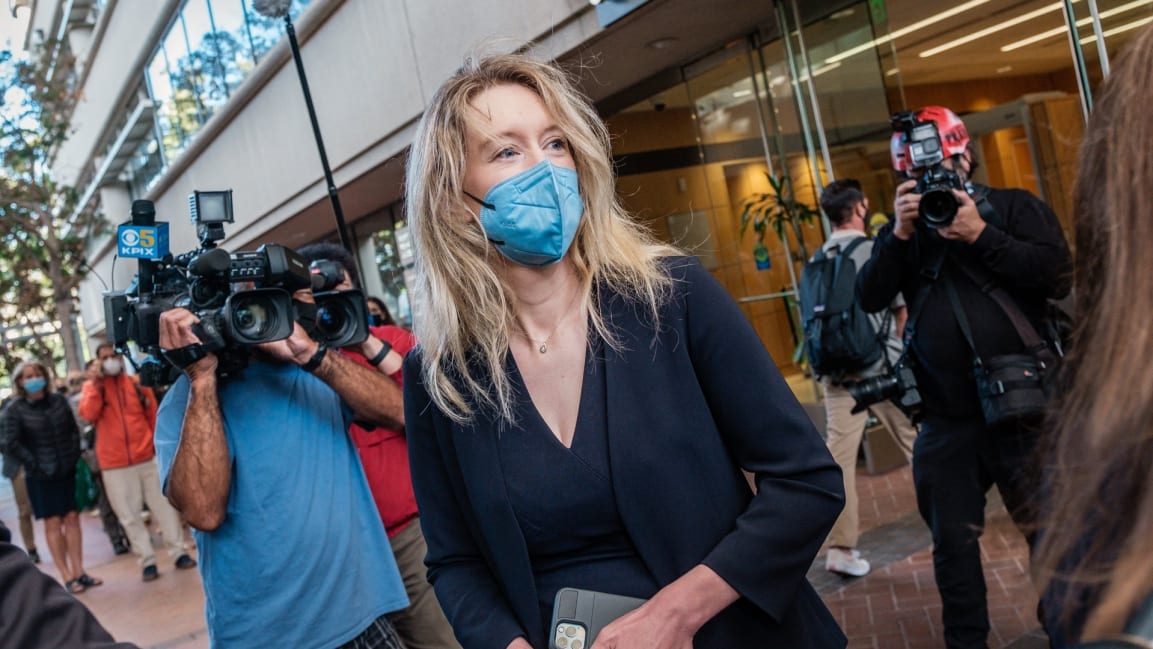‘Is this the next Theranos?’ How Elizabeth Holmes changed health-tech investing
Theranos founder Elizabeth Holmes is on trial today for defrauding both customers and investors, reigniting conversation about the company and the impact it’s had on investment in the health-technology space.
Holmes’s company developed a machine called Edison, which she claimed could run a myriad of diagnostic tests using a mere pinprick’s worth of blood or a much smaller volume than is typical. However, a 2015 report from The Wall Street Journal found that the company was only using its own technology for a fraction of the tests it offered and that the Edison machine did not deliver consistently accurate results. Holmes now faces 10 counts of wire fraud and two counts of conspiracy to commit fraud; she is pleading not guilty.
When Holmes was charged with fraud in 2018, it sent shock waves through the investment community. Theranos had raised $700 million from investors and was valued at $9 billion. But despite the Theranos scandal, venture capitalists have continued to pour cash into health-tech startups—with a few caveats. In 2020, $25 billion flowed into over 2,000 companies, according to Pitchbook data. So far this year, investment has bloomed to nearly $30 billion.
Keith Figlioli, general partner at LRVHealth, a health-focused venture fund, says he hasn’t really seen big change in terms of the kinds of bets investors are willing to take, except perhaps some increased skepticism for new diagnostic companies that say their tests can perform multiple assessments, says Figlioli. “I have seen people joke a bit about this,” he says. When a pitch for one of these companies doesn’t go well, he says, that’s when the question is asked: “Is this the next Theranos?”
In a recent story from New York Times reporter Erin Griffith, several female founders complained about investors doing this very thing: making faulty comparisons between their companies and Theranos. They say that convincing investors has gotten more difficult in the wake of Theranos’s demise. Christina Farr, principal investor at OMERS Ventures and a former Fast Company reporter, says that female founders within biotech and diagnostics seem to get most of those comparisons. But she also sees women founders in digital health thriving.
“We’re seeing major investor interest in women-led companies across digital health like Maven, Tia, Kindbody, Equip, and many more,” she wrote via email. Still, she says, Theranos has forced investors to do more diligence around companies that aspire to launch technology in clinical settings. “If I had to say there was a lasting impact anywhere, it would be in diagnostics [or] any companies that include blood testing in their model,” she says.
The problems at Theranos occurred thanks to a legal loophole that still exists. While drugs have to undergo safety and efficacy trials under Food and Drug Administration (FDA) oversight, lab-developed tests—diagnostics that are designed, developed, and processed in a single laboratory, like the ones Theranos developed—do not. While the FDA has the ability to regulate lab-developed tests, it has typically enforced at its discretion. The agency discussed closing this loophole, but in 2017 decided against doing so after meeting with various stakeholders, including companies that develop diagnostics. Congress took up the charge to regulate these tests through the VALID Act, which was first introduced in 2020.
During the COVID-19 pandemic, the lack of regulation around lab-developed tests presented an issue as laboratories quickly developed and launched diagnostics for the novel virus. Department of Health and Human Services dropped the FDA’s pre-market review requirement in order to help more tests come to market quickly. This move, and evidence of faulty tests, refreshed the conversation about ensuring that such tests were accurate. Congress is again taking action to close the loophole. In late June of this year, twin bills emerged in the House and Senate, new versions of the VALID Act, that would create a new product category and require lab-developed tests to acquire formal FDA approval.
But the closure of this loophole alone may not stave off another Theranos. In addition to benefiting from a legal loophole, Menlo Ventures partner Greg Yap says that Theranos managed to fool people because its investors were too credulous. “Theranos’s investors weren’t serious health investors,” he says. If anything, he says, he thinks the incident helped remind investors of the importance of data and peer review. “Real innovation doesn’t happen in the dark. As the saying goes, ‘In God we trust. All others bring data.’”
He says the Theranos debacle should also serve as a reminder to investors to pay attention to founders’ behavior, particularly when they’re under duress. “How do they act when no one is looking? Who do they look out for in tough times? What do they most care about?” he says. “Investing is marriage without divorce, so getting to know the person is important to me and hopefully to them too.”
(35)



